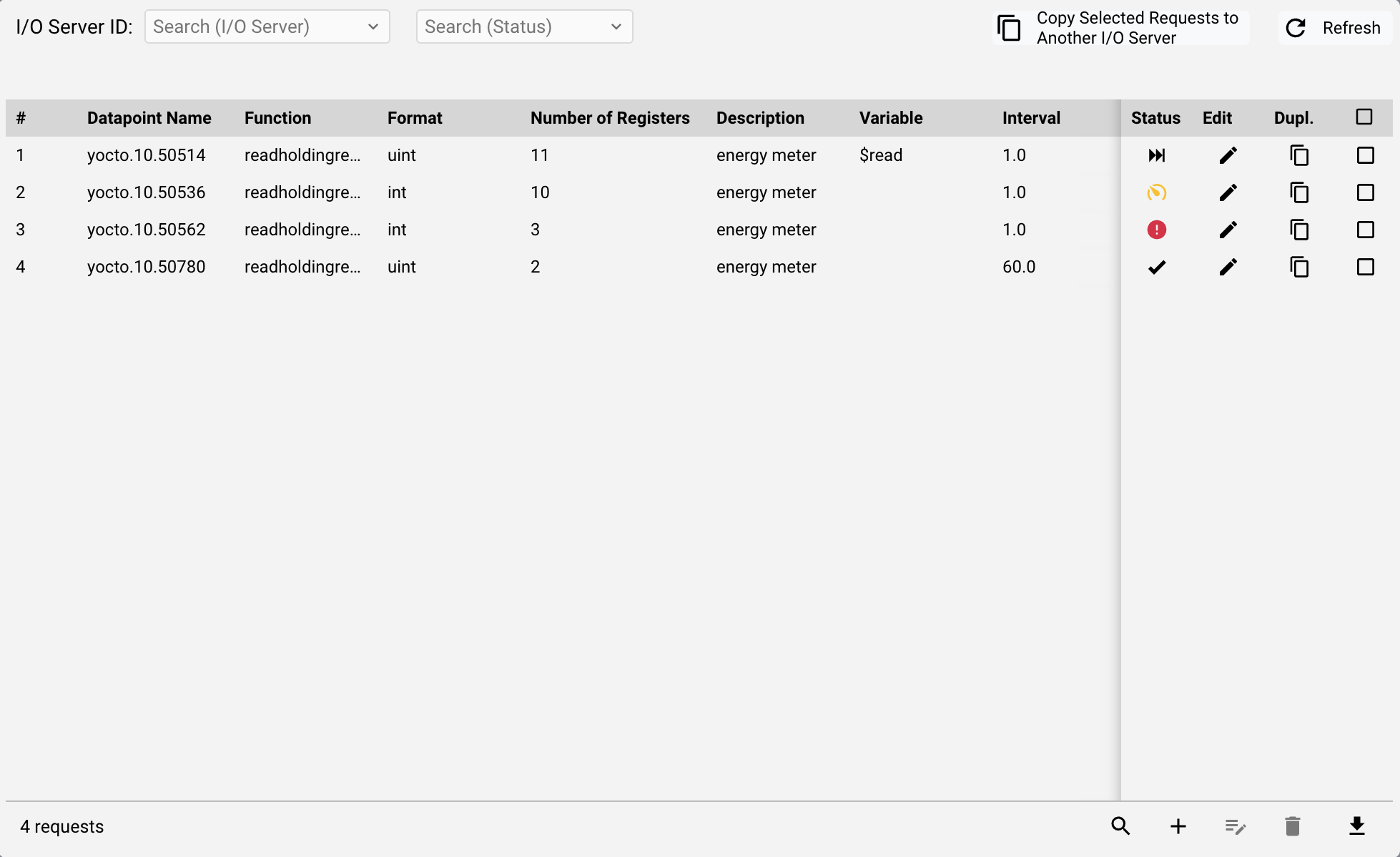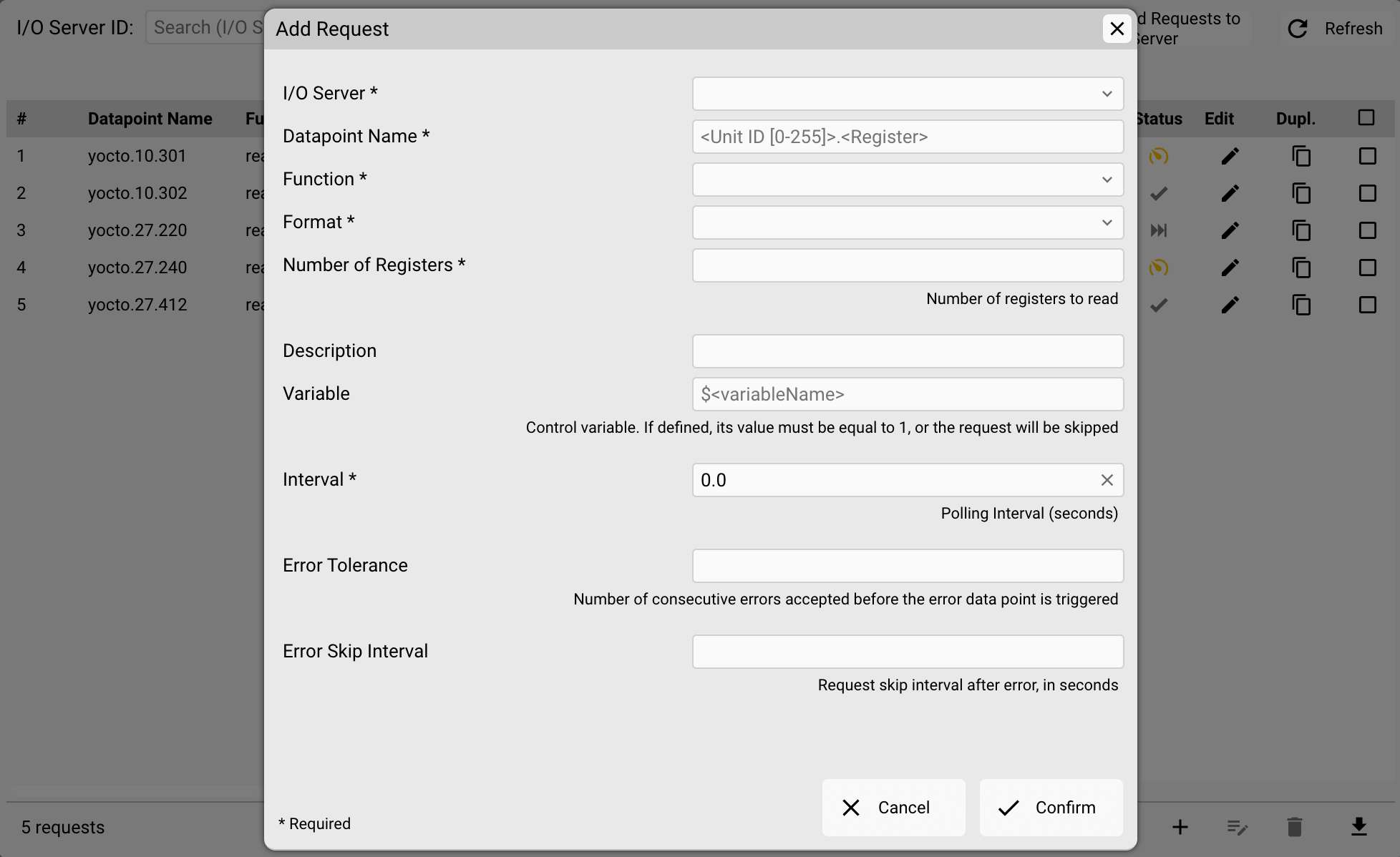Modbus Utility
The Modbus Utility is an application that allows you to easily setup repetitive polling read requests and monitor the performance and status of each request.
Each read request is defined with a repeat interval in seconds. The Modbus Utility internal scheduler will try to repeat the execution of each request as close as possible to the preset interval. It will also sequence all requests to the same Modbus I/O server so they never overlap.
You can optionally assign a variable to each request for conditional execution. If a variable is defined, it has to exist and have value 1 to activate the request polling.
The optional "Error Tolerance" parameter is used to set the number of consecutive errors accepted before the Modbus error data point is set to report an error condition. The default is zero, so that even a single error will set the error data point. For example, setting the error tolerance to two means that up to two consecutive errors will be tolerated, and only the third consecutive error will set the error data point.
The optional "Error Skip Interval" defines for how long the Modbus Utility should stop executing a Modbus request if an error occurs.

The Modbus Utility monitors each request's actual execution interval and compares it to the defined interval. If the difference exceeds 25%, the request is marked as Slow, and the deviation is shown in the delta field.
Requests that result in errors are marked as Error. The utility also tracks the minimum and maximum response times for each request, shown in the min. time and max. time columns.
Each request includes a status icon, indicating one of four possible states:
OK: The request is running as expected.
Slow: The request is slower than the defined interval.
Error: The request returned an error.
Skip: The request was skipped.
You can use the refresh button to reset the status, delta, and response time metrics.
Filters allow you to narrow down the displayed requests by status (OK, Slow, Error, or Skip) or I/O Server name. These filters apply only to your session and do not affect other users.
Note that, to reduce performance overhead, the status and performance data in the list of requests updates every second. This is shared by all users. The refresh of requests’ data has no effect on the actual request scheduler, that runs independently and is never interrupted.

The Modbus Utility configuration is stored in a human readable file named modbus-scheduler.ini and located in HSYCO’s main directory. If you manually edit this file, it will be automatically reloaded within a few seconds after it is saved. In a high availability setup, the Modbus Utility is also automatically mirrored from the master to the slave server.